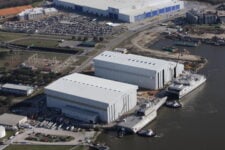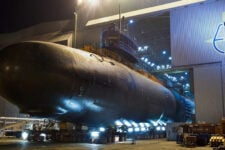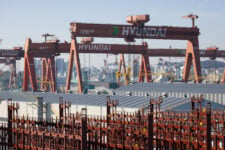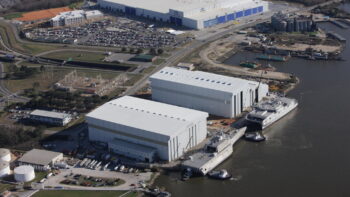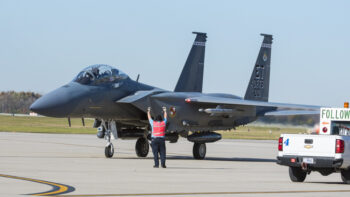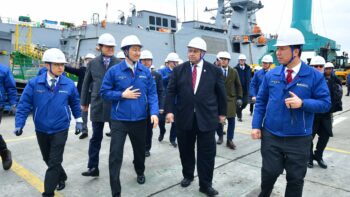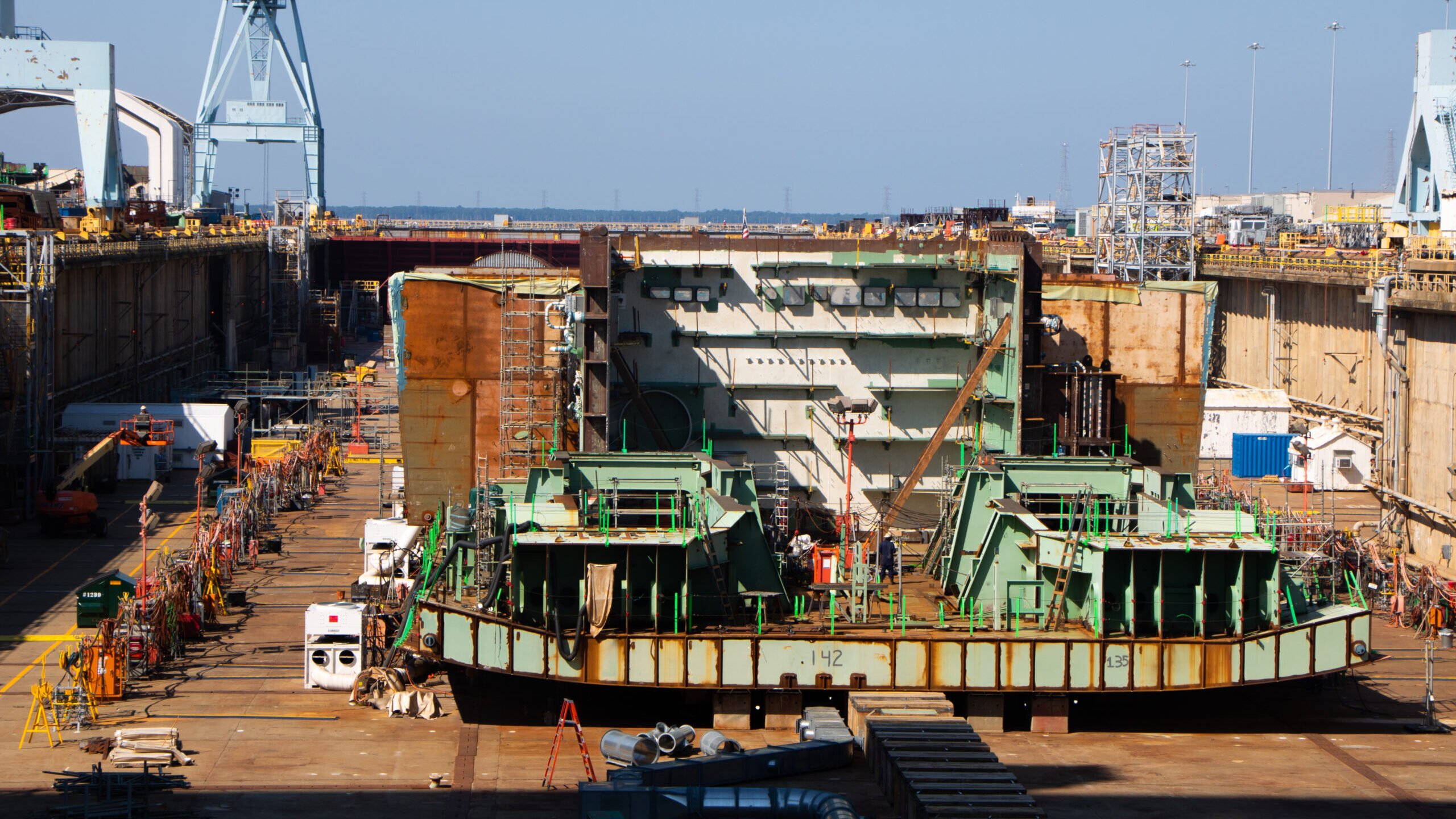
Part of the aft of the future USS Enterprise (CVN-80) being constructed inside the dry dock at HII’s Newport News Shipbuilding. (Justin Katz/Breaking Defense)
WASHINGTON — The revelation that one of the Navy’s latest Ford-class aircraft carriers is roughly a year behind schedule is stirring anxiety in the shipbuilding industrial base about whether the lasting impacts of the coronavirus could creep into future shipbuilding plans.
HII Chief Chris Kastner announced the delays in a Nov. 2 earnings call with investors and attributed the problems largely to the pandemic.
“Due to major component delays from the supply chain driven primarily from COVID, and the labor and supply chain effects subsequent to COVID, delivery of CVN-80 is forecasted to be approximately 12 months late,” he told investors.
Todd Corillo, a spokesman for HII’s Newport News Shipbuilding, said in a statement to Breaking Defense, the “pandemic and cascading labor challenges are reasons for the supply base challenges” that have delayed CVN-80’s schedule.
“CVN-80 is behind due to late sequence critical material delaying the structural build of the ship in the dock,” he continued. “We are working with the Navy and suppliers to align on schedule impacts and are doing everything we can to help deliver the ship as quickly as possible.”
Separately, Jay Stefany, the Navy’s acting acquisition executive, in a recent interview with Defense News signaled the service’s next budget request will finalize a decision about when to begin building CVN-82, with fiscal years 28, 29 and 30 all being options on the table.
RELATED: Uncharted waters: Navy navigating first-ever dismantling of nuclear-powered carrier
The prospect of a delay for CVN-82 is causing heartburn for many of the smaller companies that collectively create the supply chain HII relies on to build the Navy’s carriers.
“As I engage with [different companies], there’s a concern that if CVN-82 is delayed, many would need to lay off workers … or to revise a business model to deprioritize Navy shipbuilding,” Lisa Papini, chairwoman of the Aircraft Carrier Industrial Base Coalition, told Breaking Defense in an interview. ACIBC is a trade association representing 2,000 businesses across the country that supply parts for Navy carriers.
Papini herself is president of a family-owned small business, Dante Valve Company, with just a few dozen employees that supplies the military with pressure relief valves. While much of the country has largely moved on from the day-to-day challenges that the coronavirus caused, Papini said the loss of skilled workers has been a pervasive issue for member companies.
“I’m hoping that as we address these COVID issues … we can tie those two things together and look at them in conjunction,” she said, referring to the pandemic and possible delays to future aircraft carriers. “We know what happens when there’s a disruption in the supply chain, and how long that takes to recover from and hopefully not creating another one.”
Adding to the pressure is the fact the Navy expects to purchase CVN-82 and CVN-83 in a “block buy” format, something Stefany said in the Defense News interview remains the service’s plan pending the necessary approvals.
A “block buy” means the Navy will purchase both ships using the same contract. For industry, it provides the stability and predictability that Papini stressed is vital. As for the Navy, purchasing materials in bulk generally results in a better deal for the taxpayer.
The flipside of the “block buy” coin, though, is it ties the schedules of the two ships together — meaning problems or delays for CVN-82 are likely to snowball into issues for CVN-83.
Matthew Paxton, president of the Shipbuilding Council of America, another trade association that lobbies on behalf of the shipbuilding industrial base, said in a statement to Breaking Defense that the pandemic produced a “layer-cake of effects which includes disruptions and delays to production, global supply chain issues, tightening labor force, and historic inflationary impacts.
“That layer-cake of effects were in addition to the instability our industry has been dealing with under the uncertainty in shipbuilding and ship repair budgets,” he continued. “Despite the many outside challenges created by the pandemic, our shipyards are committed to delivering for our government and commercial customers.”
Shipbuilder Austal USA names Michelle Kruger as new president
Kruger had been serving as interim president since former chief Rusty Murdaugh resigned last spring.
